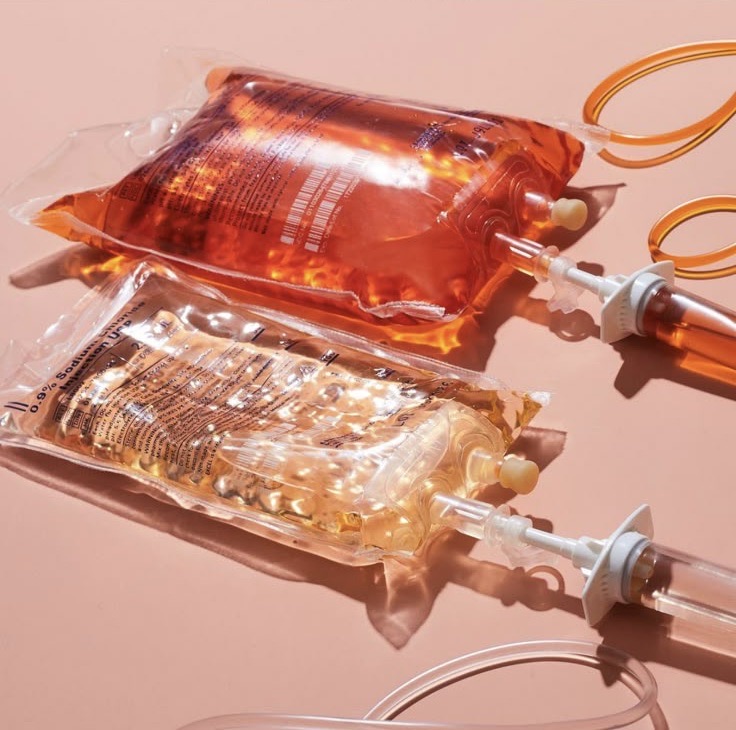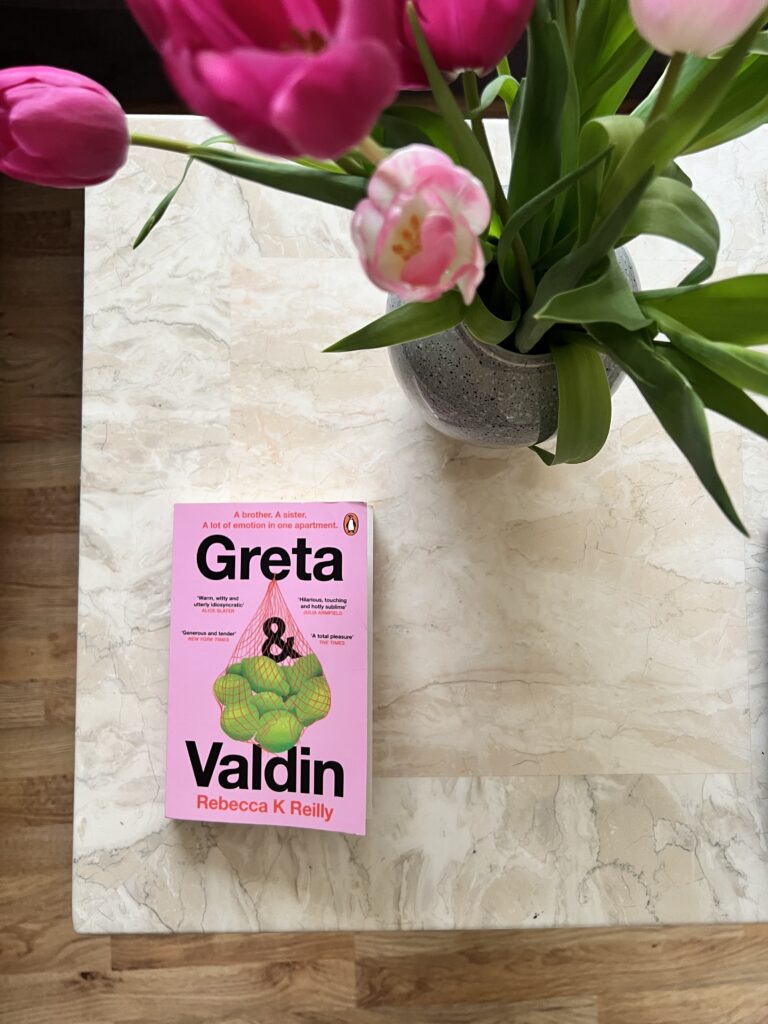I’m deep in a doom scroll one afternoon, tapping through Instagram stories that unveil quick snippets of relative unimportance – my friend’s kid drinking a babycino, an introverted friend dancing on a table, a fitness mega-influencer and her friend receiving vitamin infusions – wait, what?
Intravenous (IV) vitamin infusions aren’t a new concept. Made popular by Dr Myers in the early 1970’s, it quickly gained traction among the wealthy hoping to inch them ever closer towards immortality. There is no evidence to suggest IV infusion therapies provide any health benefit to a healthy adult.
According to the Royal Australian College of General Practitioners (RACGP), Vitamin C infusions do not have any clinical evidence to support their effectiveness. In fact, it seems they are entirely pointless.
So, what are they? And why should you ditch this major trend along with skinny teas and diet pills?
Vitamin infusions are delivered directly into the blood stream through a drip inserted into a vein. These vitamins are distributed around your body and undergo a complex process of absorption, metabolism and excretion – essentially, your body is programmed to break down what goes in and get rid of what it doesn’t need.
Vitamins and minerals are micronutrients, which support various functions of the body. They either dissolve in fat, or they dissolve in water before entering the blood stream. They are then delivered to areas of the body where it is needed the most.
A popular wellness clinical in Melbourne’s inner southeast boasted various intravenous cocktails claiming to reduce inflammation, increase energy and enhance brain performance. They contain a mix of fluids, magnesium, Vitamin B and C. It sounded good to me. One quick infusion and I’ll turn into superwoman. Why not?
The thing is, our bodies have no ability to store excess levels of vitamin B and C. Vitamin B and C are dissolved in water, filtered through your kidneys then eliminated through your urine. Magnesium, a mineral and key electrolyte, is the same. Have you ever had a multivitamin supplement and noticed your urine is bright yellow? I used to think the vitamins were working, but it turns out my body was just getting rid of what it didn’t need.
After a quick phone call to the wellness clinic, I was instantly skeptical. The nurse on the other end of the phone seemed more interested in upselling my package to include a cold plunge and an infrared sauna. I asked whether I needed a blood test beforehand, or whether there were any side effects.
“No, it’s all very safe and efficient,” they reply.
I do not proceed with an appointment.
Back to that influencer, who reported she and her Grandma had a blood test before receiving the infusion. The blood test was, “all good” however, they still decided to go ahead with the vitamin infusion. Why? If your levels are good, it means your body will just excrete everything it doesn’t need. Why would you want to flood your bloodstream with extra stuff only to pee it out later?
That’s not to say vitamins, minerals and electrolytes don’t play a key role in overall health. Vitamin C is well known to support immune function. Vitamin B is a key player in healthy skin, eye health and nervous system support. Magnesium plays an important role in muscle and nerve function, as well as heart health.
Balancing these vitamins is important for optimal health. But too much? Not good. Excess vitamin C can result in diarrhoea and nausea. Too much magnesium can lead to an irregular heartbeat, changes in blood pressure and in extreme cases, heart attacks.
Given our body is unable to store excess levels of water-soluble vitamins, there is no link between excessive consumption and improved health. Meaning, you could be fronting up hundreds of dollars on additional supplements when you aren’t deficient.
In Melbourne, a vitamin infusion could set you back anywhere between $100 and $450. In some clinics, you can add additional vitamins for $50 each.
If you have a healthy functioning gut and can routinely absorb vitamins and minerals orally, infusions offer little benefit. The most effective way to consume vitamins and minerals is through a well-balanced, varied diet to allow complex breakdown of micronutrients. You can reach your daily dose of Vitamin C by eating half a red capsicum.
Even more concerning, are the social faces and celebrity influencers who are not medical professionals, glamourising medical interventions en masse. The cast of Selling Sunset integrated the experience into their GRWM routine, a group of them sitting in a multi-million-dollar Palm Springs villa with an alcoholic cocktail in one hand, and vitamins flowing into the other. The infusion drips in slowly while they laugh in synchronicity about “balance”. Sophia Vergara famously stationed vitamin infusions at her wedding reception to keep guests hydrated.
@drjb.aesthetics IV vitamin drips are often marketed as a quick fix to boost energy, improve immunity and enhance overall wellness. However, in individuals who are fit and well with no medical health issues, these intravenous treatments are essentially pointless. Our bodies are designed to efficiently absorb nutrients from a balanced diet and excessive vitamin intake can lead to potential harm. While IV drips may provide temporary hydration, their touted benefits lack scientific evidence. It is important to prioritise a healthy lifestyle, including a nutrient-rich diet, regular exercise and adequate sleep, rather than relying on unnecessary and potentially risky IV vitamin drips #ivvitamintherapy #ivvitamins #ivvitamininfusion #ivvitamintreatment #sellingsunset
♬ original sound – Dr Jonny
While harm might not stem directly from vitamin replacement therapy, the real damage is popularising medical interventions without proper assessment and follow-up. It’s easy to convince ourselves that vitamin supplements aren’t harmful, but have you ever read the back of a vitamin bottle? They all come with warnings.
The Food and Drug Administration (FDA) even warns consumers to, “be wary of hype”, further reinforcing, “sound health advice is generally based upon research over time, not a single study”. Continuing with their warning they remind consumers, “If something sounds too good to be true, it probably is”.
Vitamin infusions may seem sexy but they’re actually just a waste of money. Unless you are nutritionally deficient or have an electrolyte imbalance proven by a blood test and medical exam, I wouldn’t bother.
For me? I’ll stick to my occasional Hydralite for a hangover.
Read more of our Health & Wellness articles here.
Learn more about vitamin infusions below.





